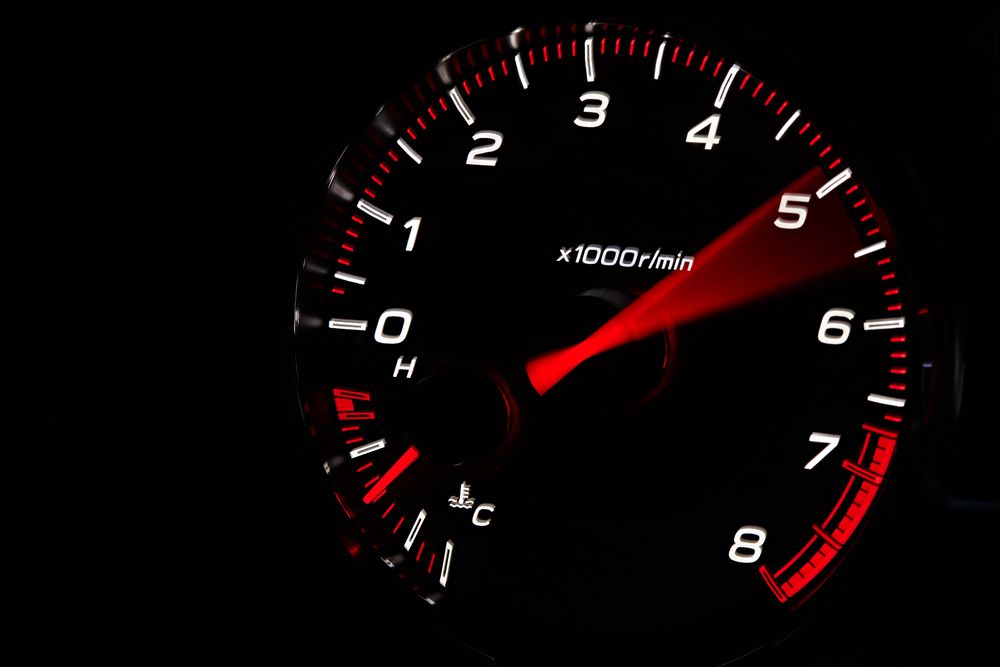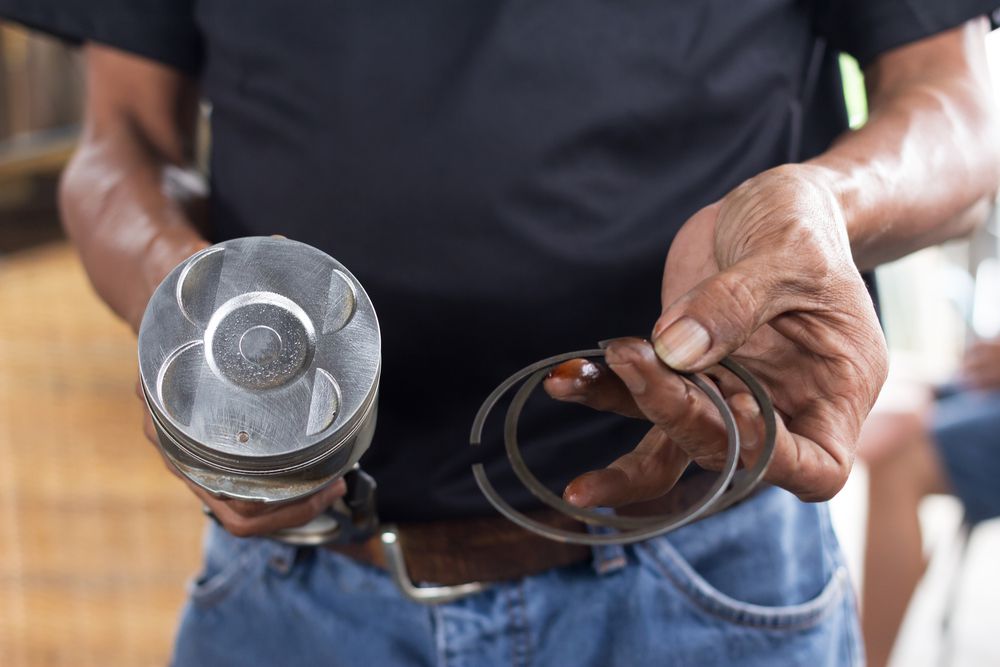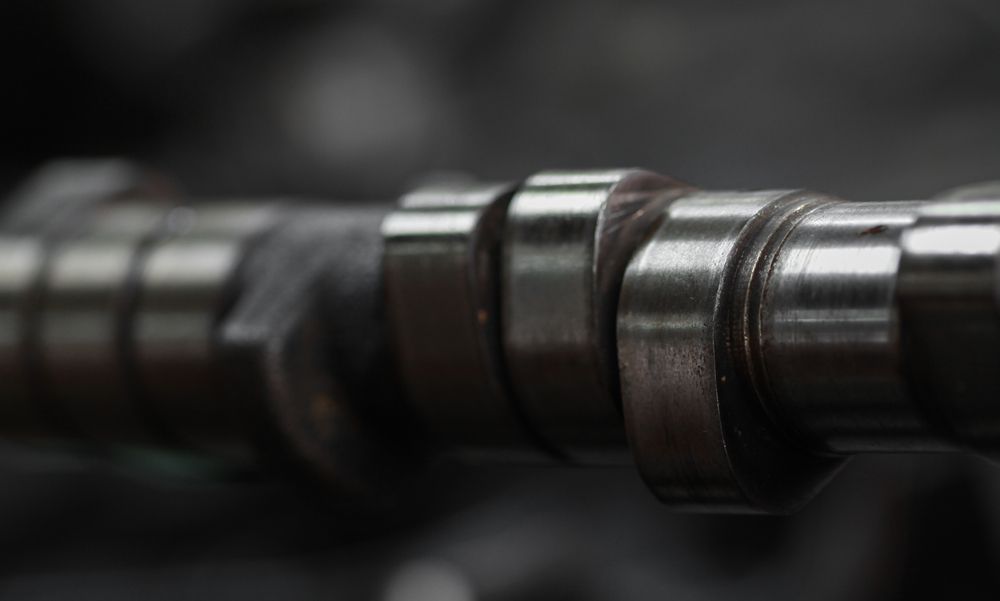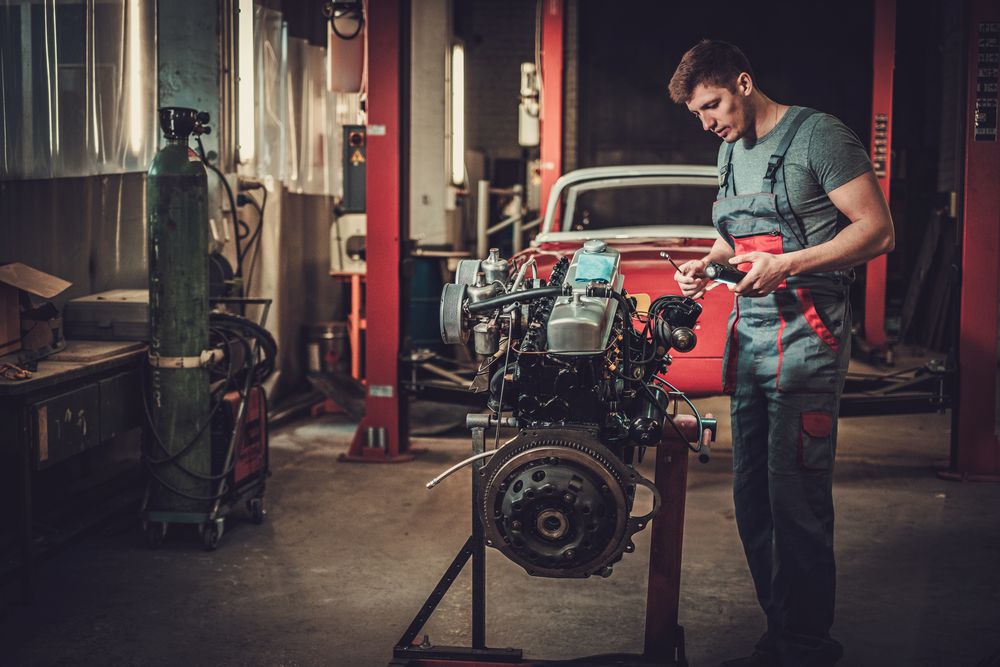When it's cold outside, you may be tempted to rev your car's engine to warm
it up quicker, but you may ask if revving the engine in park will damage
it.
It's OK to rev your engine while the vehicle's in park as long as it is
warmed up to operating temperature and you keep the engine's RPMs
within recommended operating range.
The ECU controls modern vehicles' idle speeds on cold starts to warm up
as quickly as possible while minimizing premature wear to the engine
and wasted fuel.
Keep reading as we discuss why revving your engine while in park can
sometimes be a mistake and other common questions.
 Redlining a tachometer while in park.
Redlining a tachometer while in park.
Does Revving The Engine In Park Damage It?
If the engine is at normal operating temperature and you keep the engine's
RPMs below its redline, you will not damage it by revving while in park.
However, you most definitely risk engine damage if you rev excessively
immediately after a cold start.
The engine's cold idle speed on modern vehicles is set by its ECU
(electronic control unit). The ECU will set the idle speed fast enough that
it warms up the engine as quickly as possible while still not fast enough
that excessive engine wear occurs.
For example, a vehicle typically idles between 1000 and 1200 rpm right
after a cold start but will idle down to between 600 and 800 rpm once it
warms up.
In cold temperatures, engine oil may not flow optimally, so it's important
to let your engine warm up fully before revving the engine if you want to
avoid premature wear.
Cold engine oil will not flow through the engine fast enough to properly
lubricate all the wear locations in the engine leading to premature wear.
Parts like piston rings, cylinder walls, rod bearings, and camshaft lobes
are all parts that can prematurely wear due to improper lubrication.
 Piston rings can wear prematurely if they are not lubricated properly.
Piston rings can wear prematurely if they are not lubricated properly.
What Happens If You Press The Gas While In Park?
If you press the gas while your vehicle's in park, nothing bad will happen
if the engine is at its recommended operating temperature and you don't rev
the engine over its redline.
Revving an engine in park does needlessly burn extra gas and cause excess
wear and tear on the engine's internal components.
If you rev the engine while in park, then shift the transmission into
drive, you risk damaging the transmission.
Can Revving The Car's Engine In Park Hurt The Environment?
According to the
Environmental Defense Fund
, you can even harm the environment by simply idling in park.
While it may be tempting to rev in park to warm a cold car's engine, it's
not going to make a huge difference compared to just driving the car to
warm it up.
And this way, you can stay committed to more eco-friendly driving efforts.
Can Pressing The Gas Pedal In Park And Revving Cost More Money?
Pressing the gas pedal while the transmission is in park and revving will
cost more money due to excessive fuel consumption and possibly repairs due
to excessive wear and tear.
A modern vehicle's ECU will keep your engine's idle rpm at an optimum rate
that minimizes fuel usage while keeping the engine running smoothly.
Pressing the gas pedal while in park pumps more fuel into the engine's
combustion chambers, burning more fuel and costing more money.
Pressing the gas pedal in park increases the engine's revolutions per
minute, increasing the engine's wear.
 Camshafts can wear or get damaged without proper lubrication.
Camshafts can wear or get damaged without proper lubrication.
Can Over Revving Damage Engine?
Over-revving means going over the engine's redline.
Engines have a redline, the maximum the engine can rev before the
likelihood of engine damage dramatically increases.
Briefly, over-revving an engine most likely won't damage an engine;
however, regularly over-revving an engine will almost surely cause
excessive wear and most likely cause damage.
High-performance engines found in sports cars can usually withstand
over-revving better than engines found in a typical family sedan.
Can Revving An Engine In Park Damage Other Car Parts?
Revving an engine in park can damage the engine and other parts, including
the transmission.
For example, revving an engine in park and then shifting the transmission
into drive while the engine's rpm's are still high can damage the
transmission.
Automatic Transmissions are designed to shift into drive from the park
while an engine is idling, typically around 700 rpm.
Shifting the transmission at an elevated rpm dramatically increases the
forces and load on the shifting linkage and transmission components.
Manual transmissions and associated parts can also be damaged by revving
the engine too high and then "dropping the clutch," which abruptly engages
the clutch putting it under an extreme load.
 A mechanic rebuilding an engine.
A mechanic rebuilding an engine.
What Is The Cost Of Repairing Engine Damage From Revving?
Engine damage can be quite costly, but some of the most common engine
repairs/replacements include the following:
-
engine cylinder head replacement (about
$3,600
for parts and labor)
Engine piston ring replacement (about $2,600 for parts and labor)
-
crankshaft (about $2,500 for parts and labor)
Valve train repairs (about $1,500-$2,000 for parts and labor)
Rod bearing at the end of the connecting rod (about $2,000-$3,000 for
parts and labor)
It's also worth noting that these are just estimates, and prices can vary
greatly depending on the type of labor, location, quality of parts, car
model, and many other factors.
What Is The Cost Of Repairing Transmission Parts From Revving The Engine?
Other parts that may get damaged due to revving include the transmission,
such as the clutch, drive shaft, and differential:
-
clutch (about $1,350 to replace)
-
automatic transmission (about $3,000 to replace)
Does Revving The Engine In Park Warm It Up Faster?
Revving an engine in park will warm it up faster; however, it will also
increase fuel consumption and wear and tear.
If you want to warm up your engine quicker by revving it, it is recommended
to let the engine run for at least two minutes at its normal idle speed
before revving it higher.
Unless it is extremely cold outside, below freezing, it is most likely
better to drive the vehicle rather than rev it to warm it up faster.
Is It A Good Idea To Warm Up A Cold Engine By Revving It?
Revving a cold engine to warm it up is generally inadvisable. It is
preferable to let a cold engine warm-up slowly because cold oil does not
pump optimally through an engine. If you rev a cold engine, the friction
components may not receive sufficient oil and, by extension, the
lubrication it needs.
After idling for a few minutes, it is safe to let the engine warm up while
you drive, even if the temperature gauge hasn't warmed up.
Conclusion
Generally speaking, revving a car's engine in park won't damage it, and it
is not bad to rev a car's engine.
Where you can run into problems is if you over-rev an engine, which is
revving an engine over its redline.
Over-revving an engine puts a load on the engine higher than what it is
engineered to withstand.
Revving an engine while in park also burns excessive fuel and causes
unnecessary wear and tear on the engine.
Over-revving also can damage a transmission if it is put in drive without
letting the rpm's drop down to the normal idle speed.